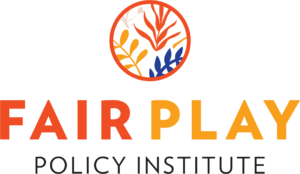Health and Wellbeing
Shouldering the Invisible Workload: Balancing Mental and Physical Labor in the Home
The State of Household Gender Inequity
 The distribution of household responsibilities is an important, if overlooked, driver of global gender inequality. Research shows women take on at least two and a half times more unpaid household and care tasks than men, and this is without accounting for the mental load that accompanies these responsibilities. As a result, many women experience increased stress, dissatisfaction in their relationships, and problems balancing work and family life.
The distribution of household responsibilities is an important, if overlooked, driver of global gender inequality. Research shows women take on at least two and a half times more unpaid household and care tasks than men, and this is without accounting for the mental load that accompanies these responsibilities. As a result, many women experience increased stress, dissatisfaction in their relationships, and problems balancing work and family life.
This unpaid work has a massive financial impact, contributing over $10 trillion to the global economy. We know this unequal burden affects women and families around the globe, but we don’t fully understand the health impacts resulting from these burdens and we don’t yet have scalable solutions.
The Partnership
Public Exchange and researchers from the USC Dornsife Center for the Changing Family partnered with The Fair Play Policy Institute–creators of the New York Times Bestselling book and documentary, Fair Play–to dive deeper into the effects of household labor inequities.
Fair Play is a card-based system that assigns a card for each household task. The 100 cards in the deck represent the Conception, Planning, and Execution of a range of responsibilities, including doing dishes, meals, kids’ medical appointments–and then uses the cards in a game-like system to quantify and visualize couples’ respective domestic labor burdens. Our team investigated the division of household labor among couples–including cognitive labor like anticipating, planning, and delegating specific tasks–to determine how Fair Play affects household equity and mothers’ wellbeing.
This partnership is one of the first studies to quantify the impact that instrumental (physical) and cognitive household labor have on womens’ mental health.
“We are excited to share our new study, which looks more longitudinally at the impacts of cognitive labor on mental health than any previous study. If we haven’t made this clear enough already, we need to take this issue more seriously. This study is a critical first step in the right direction.” – Eve Rodsky, New York Times Best Selling Author, Fair Play
The Approach
 In a two-cohort study with over 500 participants–primarily mothers–we used Fair Play Cards to evaluate the division of household work between couples, and then compared that data to validated measures of mental and physical health, along with data about relationship quality. Participants completed a baseline survey, followed by an eight-week online Fair Play intervention. After the intervention, they completed a follow-up survey which mirrored the baseline survey, to gauge changes in household task distribution and participants’ wellbeing.
In a two-cohort study with over 500 participants–primarily mothers–we used Fair Play Cards to evaluate the division of household work between couples, and then compared that data to validated measures of mental and physical health, along with data about relationship quality. Participants completed a baseline survey, followed by an eight-week online Fair Play intervention. After the intervention, they completed a follow-up survey which mirrored the baseline survey, to gauge changes in household task distribution and participants’ wellbeing.
The Mental Side of Household Labor
Domestic labor is usually thought of as tasks like cooking, cleaning, and doing laundry, but often forgotten is the effort of anticipating, planning, or coordinating such tasks–and ensuring that they get done. We specifically sought to test the division of cognitive labor, or the mental load of housework, as this is an understudied aspect of the domestic workload that may have important ramifications for mental health.
Our baseline findings reveal that mothers consistently shoulder more household responsibilities than their partners, including a notably larger share of the mental load. And this imbalance isn’t just a small detail—it has a big impact, significantly affecting moms’ health by adding “invisible” tasks to their overall workload.
Mothers who held a larger share of overall domestic responsibilities reported:
![]()
Mothers who carried a greater amount of mental responsibilities (i.e., the planning for each task) showed the same negative indicators, plus others, including:
![]()
For more information about our baseline findings and about the impact of the mental aspect of household labor, click HERE.
 The Fair Play Policy Institute is a private foundation aiming to advance equity with a focus on care justice.
The Fair Play Policy Institute is a private foundation aiming to advance equity with a focus on care justice.

To engage with the study team, please contact Public Exchange Senior Project Manager, Doug Messer
messerd@usc.edu
The Fair Play Effect
After our baseline, we explored how the Fair Play Method intervention could change the way household labor is divided and what effect this has on women’s health and wellbeing. Here’s what we found:
-
-
- The more modules of the intervention that a participant completed, the more equitable their division of tasks became.
- Larger shifts in the division of labor that occurred as a result of the intervention were linked with greater improvements in mental health.
- Women whose household workload balance improved after the intervention also reported better relationship quality and less personal burnout.
- These improvements in the division of labor are linked with improved mental health and relationship quality.
“I like getting to have conversations with my husband about what my mental load is because he didn’t realize just how much planning there is to every task in the home and with our children. It has allowed us to divide up that labor and he’s been able to take some things off my plate to make our lives easier.” – Study Participant
Results from our first cohort showed significant improvements in the distribution of both cognitive and physical labor after the intervention. In contrast, the second cohort saw less progress in labor equity, likely due to the smaller sample size. However, when physical labor distribution did improve in the second cohort, it led to reduced burnout and greater relationship satisfaction.
Our findings suggest that the Fair Play Method holds promise to improve the division of mental and physical labor within households. In turn, improvements in the division of labor are linked to better health and wellbeing in mothers.
Click HERE to take a closer look at our full findings.

What’s Next
Our study shows the potential of Fair Play to promote more equity in domestic labor by redistributing duties more fairly. It also shows that a more equitable household labor burden can improve mental health and relationship quality.
Future research could explore ways to make the program more accessible, or dive deeper into how concepts like cognitive labor or domestic labor equity have ripple effects at work and throughout society.
Read our full report of findings HERE.
-
Project Team Members







This research was produced as part of a collaborative effort between the USC Dornsife Public Exchange, USC Dornsife Center for the Changing Family, the Fair Play Policy Institute, and a Fortune 500 healthcare company. For Fair Play specific questions, please email info@fairplaypolicy.org.